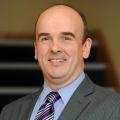
AN education hub aimed at people working in specialist palliative care has been launched at Wirral Hospice St John's.
The facility is also designed allied health professions, whether they are fully qualified and/or undertaking further learning to enhance their career in health and social care.
Sessions are delivered by experienced medical, clinical and other health professionals, who outline their own work and current best practise, across a range of physical, spiritual, emotional and psychological, treatments and therapies for people across the full range of complex life-limiting illnesses.
The hub has been launched in collaboration with Wirral University Teaching Hospital NHS Foundation Trust (WUTH Arrowe Park and Clatterbridge) and the specialist palliative care team at Wirral Community Health and Care NHS Foundation Trust (WCHC).
The launch event was hosted by hospice medical director, Dr Emma Longford, who introduced honorary palliative care consultant of St Oswald's Hospice in Newcastle, Dr Claud Regnard, and Dr Richard Latten, a palliative care consultant at both WUTH and the hospice.
The launch event coincided with the birthday of Dame Cicely Saunders, founder of the modern hospice movement, whose pioneering work in palliative care paved the way for the kind of specialist care and support at Wirral Hospice St John's and its NHS partners in healthcare locally.
Dr Claud’s presentation gave a brief history of palliative care tracing its roots back to the Roman word ‘pallium’ which was a cloak designed to give people warmth and comfort.
Dr Richard was joined by WUTH palliative care nurse, Emma Given. They gave an overview of approaches being adapted at Arrowe Park to encourage health professionals to get to know their patients and what makes them happy. This policy makes the question 'what matters most' the most important one to ask patients, and their loved ones, especially in the case of a life-limiting illness.
Speaking at the launch Dr Emma Longford said: "Once a life-limiting diagnosis is confirmed people need the best possible advice, care and support with strategies for how their illness can be managed and mitigated. As far as possible a life limiting illness should not limit a person's quality of life.
"The more people in the health and social care sector who can both share and gain the knowledge and skills necessary to deliver the best care and support for the care of patients living with life-limiting conditions, the better that care becomes for everyone in our communities.
"The Wirral Palliative Care Education Hub is developing and will now have a regular schedule of talks and presentations available for a host of healthcare professionals to attend."



Comments: Our rules
We want our comments to be a lively and valuable part of our community - a place where readers can debate and engage with the most important local issues. The ability to comment on our stories is a privilege, not a right, however, and that privilege may be withdrawn if it is abused or misused.
Please report any comments that break our rules.
Read the rules here